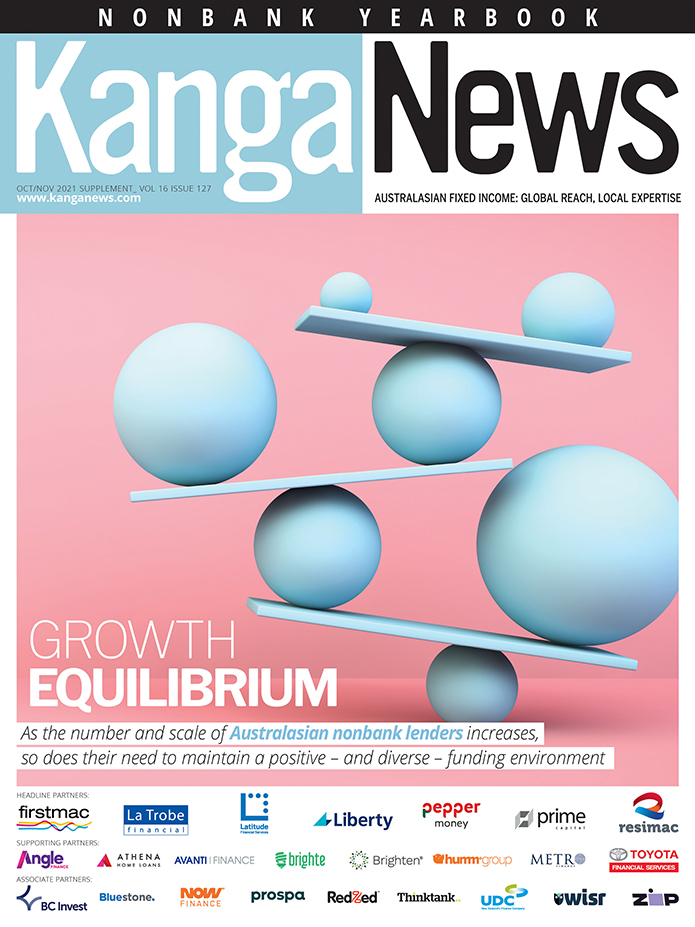
New Zealand, BNPL and acquisition highlight Latitude's opportunity set
Changes to consumer-finance law in New Zealand are approaching. Andrew Robinson, Melbourne-based head of funding at Latitude Financial Services, tells KangaNews the nonbank believes the extra requirements being placed on lenders are an opportunity to capitalise on its nimbleness and technology platform.
Latitude priced its second asset-backed securities (ABS) transaction in New Zealand in August, having debuted in 2018. What has growth in Latitude’s lending portfolio been like since the first transaction?
While COVID-19 has had an impact on the New Zealand sales-finance and credit-card market it is pleasing that since 2018 Latitude has grown its share of the market to 16 per cent. We have also seen a strong rebound in our New Zealand personal-loans portfolio subsequent to the initial effects of COVID-19. In the six months to 30 June, personal loans were up 46 per cent on the previous corresponding period.
How will forthcoming changes to New Zealand’s Credit Contracts and Consumer Finance Act affect the personal-lending landscape in New Zealand?
We welcome the 1 October changes, which will extend and strengthen the responsible-lending regime backed by new due-diligence obligations for directors and senior managers. It is true that the changes risk adding significant friction in the customer experience, particularly between application and transaction. However, Latitude has the technology to improve the customer experience despite the additional obligations. This creates a significant opportunity for our business.
Are the changes likely to favour nonbanks versus banks?
While they are significant changes, they do not particularly favour one sector over any other. However, in acquiring new customers, the enquiries and assessments required under the new rules may better suit the nonbanks given these lenders are likely to have more flexible processes and technology.
In Australia, Latitude last executed a term transaction in February 2020. Does the business have any immediate plans to return to the Australian dollar public market?
We are watching the market and considering our options. Last year we made a deliberate decision not to go to market and to focus on our private funding because of COVID-19. All options are on the table for the remainder of 2021 and into 2022.
Latitude listed on the ASX in April this year. How, if at all, does the listing affect funding strategy?
Listing on the ASX has opened a range of new funding options. It has also allowed us to simplify our funding-trust structure to a more conventional ownership model that is easier for investors to understand. We have moved quickly to execute on these options with our recent launch of a capital-notes offer.
The buy-now, pay-later (BNPL) sector seemingly goes from strength to strength in Australia. How has LatitudePay performed over the last 12 months?
LatitudePay, our BNPL product, rounds out the payment solutions we offer our merchant partners and introduces a different demographic to our range of products. We are not a single-product BNPL originator so our strategy is about building out and complementing our range of payment products.
Over the last 12 months, LatitudePay has experienced customer growth of 73 per cent, to 458,000, while adding approximately 2,000 new merchant partners. We have also piloted LatitudePay+, our “big ticket” BNPL product, which will enable customers to make larger BNPL purchases. This will complement our existing sales-finance payment products, bringing in new customers and broadening our appeal to new merchants, particularly in the services space.
Latitude announced the purchase of Symple Loans in September. Does this signal a more aggressive push into the personal-loan market for Latitude?
Symple Loans is a strong strategic acquisition for Latitude. While the acquisition is still subject to regulatory approval, Symple’s technology will become the platform for all our existing personal-loan products and will enable us to launch new products and into new markets, such as auto loans in New Zealand. It is a very exciting opportunity for us to broaden and deepen our already strong position in the personal-loan market.

nonbank Yearbook 2021
KangaNews's sixth annual guide to the business and funding trends in Australia's nonbank financial-institution sector.








